Horrors of war which haunted POWs for life
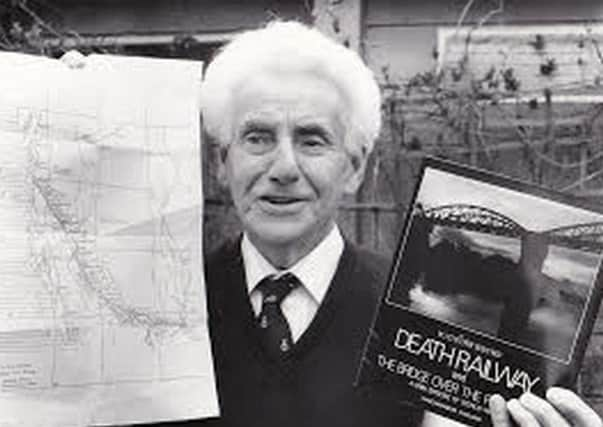

His duties took him all over the world and one journey in particular highlighted the peculiarities of a world at war.
He was shipped to the Middle East on an American vessel called the USS Mount Vernon. When the voyage began, America had not joined the war – by the time they arrived, Pearl Harbour had been attacked and everything had changed.
Advertisement
Hide AdAdvertisement
Hide AdWilliam’s military records listed him as lost in Malaya from January 12, 1942 and then on February 15, 1942, at the fall of Singapore he was captured by the Japanese.
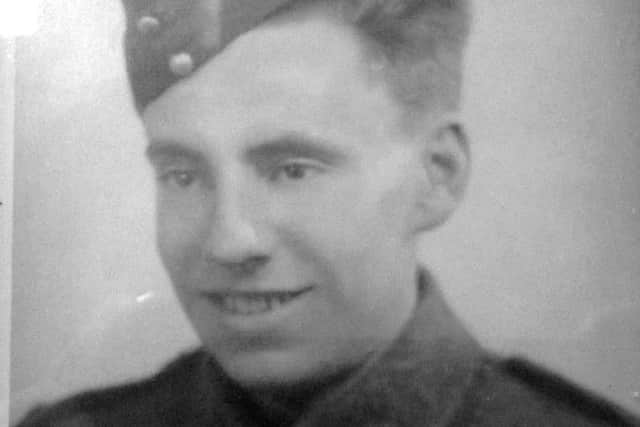

At the age of 22, he was taken by his captors to build the ‘Death Railway’ through the jungle.
From the information his daughter, Chris Beer, has been able to gather, William was held in nine prison camps over the coming years and contracted tropical diseased such as beri-beri, malaria, dysentery and the worm parasite strongyloides.
Chris described one act of bravery which summed up the spirit of the captured men.
Advertisement
Hide AdAdvertisement
Hide AdWilliam was in the River Valley Road Camp in Singapore in August 1942, where Lt Col Heath stood as leader of the men.
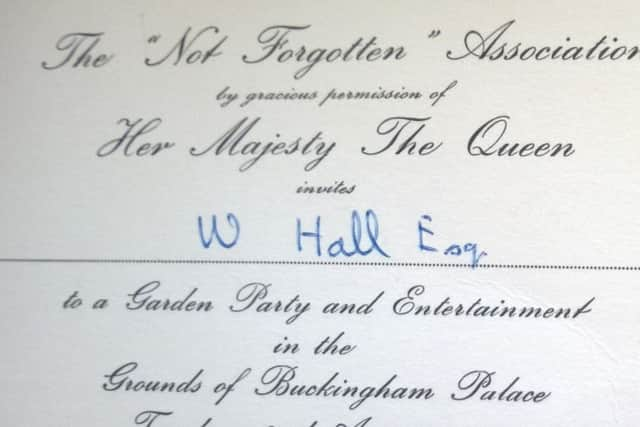

Chris said: “In August 1942, Colonel Fukure, the Japanese commander, called upon every prisoner of war in Singapore to sign a certificate saying he would not escape. Every man refused to sign.”
By September 2, the men were in the Selerang Camp, which saw 16,000 held in an area built for 850. It was there William contracted dysentery.
Chris said: “Dad recalled the Japanese had machine guns trained on them, and they had to stand and sleep in searing heat for four days.
“Dad and others had to help dig latrines.
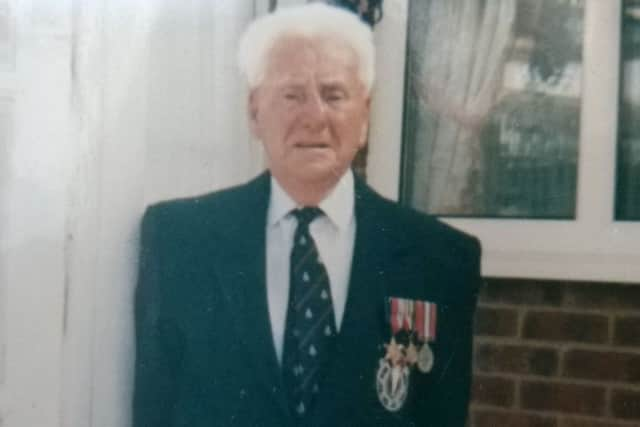

Advertisement
Hide AdAdvertisement
Hide Ad“As disease was already rife the Japanese showed they meant business by executing a number of men who tried to escape.”
It was at that point, said Chris, that the men, who were all growing ill, signed the pledge not to escape.
She said: “From here they were transported up into Thailand, in steel railcars, packed like sardines in searing heat where they could barely sit or stand, for about three days, and having dysentery must have been horrendous.
“You can’t imagine how these poor sick starving men, including my dad, must have felt like. This was just the start of their living hell.”
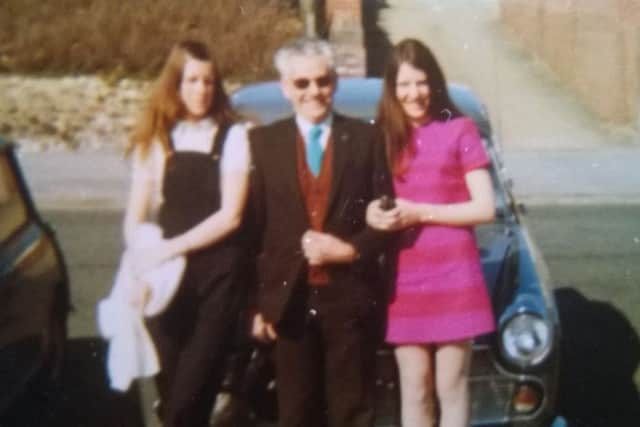

Advertisement
Hide AdAdvertisement
Hide AdA hospital camp in Kanchanburi was William’s next stop and saw another act of heroism – this time on the part of a civilian – which saved many lives.
Chris said the mayor of Kanchanburi was a local shop trader the Japanese soldiers went to for supplies. Realising how ill the prisoners were, he put his life on the line to help them.
She said: “While the Japanese were talking to his daughter, he would sneak much-needed medicines and food into boxes, which undoubtedly saved a lot of POW lives.
“Had he been caught, he would have been executed. And so after the war he was commended for his very brave actions.”
Advertisement
Hide AdAdvertisement
Hide AdBy March 1943, William and his fellow prisoners were deep in the jungle, being ordered to clear through the rock face to start work on the ‘Death Railway’. William’s group – D Force – worked on the building of the bridge at Whang pho (Wampo) viaduct.
Chris said: “Hundreds of prisoners lost their lives while on this job either by drowning or by exhaustion or malnutrition or being literally beaten to death. My dad told me that for every sleeper laid, a prisoner died.”
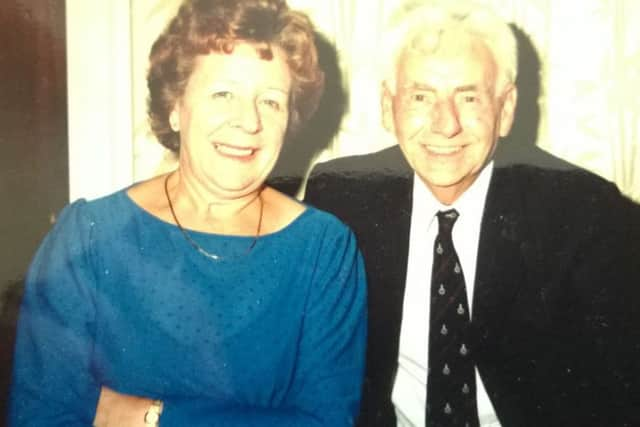

After the bombing of Hiroshima and Nagasaki, William was one of many seriously ill men who were flown out of the jungle in a Dakota plane to a hospital in Rangoon.
His war experiences never really left him, though, and Chris described an incident where, while William was at work, a colleague swore at him so he punched him.
Advertisement
Hide AdAdvertisement
Hide AdHe told his boss he had been beaten and sworn at for years and no one was going to get away with it again.
William married Irene in 1947 and they had two daughters, Chris and Lorraine. Like many ex-prisoners, he was plagued by nightmares of his time in the camps as well as ongoing health problems.
William eventually returned to Thailand in 1987 with members of the London Far East Prisoners Of War group (FEPOW) where Chris said he ‘buried a few ghosts’.
He took with him a casket containing the ashes of a woman whose husband died in the camps. She was laid to rest with him in Kranji cemetery, Singapore.
Advertisement
Hide AdAdvertisement
Hide AdIn 1988, at the age of 68, William suffered a massive brain haemorrhage while on holiday in Los Angeles.
After 18 hours of brain surgery, he was kept in an induced coma.
Chris said the young anaesthetist, who eventually brought him round, was Japanese and, in his confused state, William was unable to hide his fear when he saw the man leaning over him.
She said: “Dad made a full recovery and thankfully he remembered nothing about that incident.”
William died in January 2001 at the age of 80.
Advertisement
Hide AdAdvertisement
Hide AdConsidering the abuse and illness he suffered during the war, it could be considered a miracle he made it so far.
Chris said: “Dad said his prayers every day so someone up above must have been looking after him. What a brave man he was. He was always my hero.”
Don’t miss out on all the latest breaking news where you live.
Here are four ways you can be sure you’ll be amongst the first to know what’s going on.
1) Make our website your homepage at www.chichester.co.uk/
Advertisement
Hide AdAdvertisement
Hide Ad2) Like our Facebook page at www.facebook.com/ChichesterObserver
3) Follow us on Twitter @Chiobserver
4) Register with us by clicking on ‘sign in’ (top right corner). You can then receive our daily newsletter AND add your point of view to stories that you read here.
And do share with your family and friends - so they don’t miss out!
The Chichester Observer - always the first with your local news.
Be part of it.